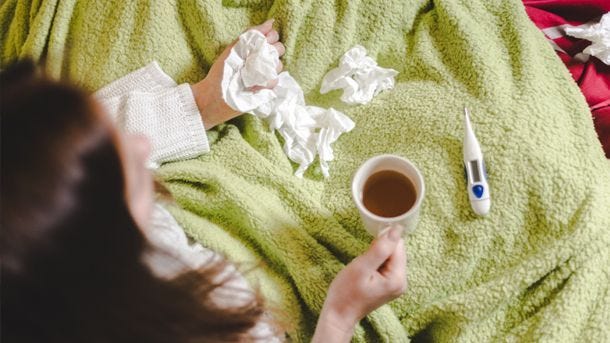Survey: Have You Used CPAP with a Cold Or the Flu?
Cold and flu season can be a bit tricky while trying to maintain your nightly sleep therapy. You’ve gotten your flu shot. You wash your hands diligently and you carry a hand sanitizer wherever you go. Regularly washing bed sheets and pillowcases, sometimes even avoiding contact with ill friends and family members all to elude the dreaded winter sickness. Most importantly you use your CPAP every night to make sure you are getting enough sleep. And yet….you notice a simple cough and sore throat fear the worst! In this post our CPAP users share tips for staying compliant when you are sick with a cold or the flu.
The CDC is already showing an increase in the flu, and as the season progresses, it will get worse. For those on CPAP, the flu or a severe cold can spell added frustration and sleep problems. Most people try very hard to avoid the flu, but sometimes that’s not enough.
CPAP Users Share Tips in Our Survey
Managing this situation can, at times, be difficult for the average CPAP user. We recently conducted a survey of our CPAP users hoping to get an insight into their habits to offer tips for preparing or are in the midst of trying to sleep with the cold or flu. Our CPAP users were happy to share tips. Managing cold and flu season coupled with CPAP compliance can be the difference between more serious sickness and a short duration cold.
How do CPAP users navigate a cold or (shudder) the flu? We first wanted to know if users continued CPAP therapy once sick? 75% of CPAP users continue with therapy while they have a cold or the flu! Although this percentage is not outstanding, we, of course, understand why 25% would discontinue with therapy. Unfortunately, this can be quite counterproductive.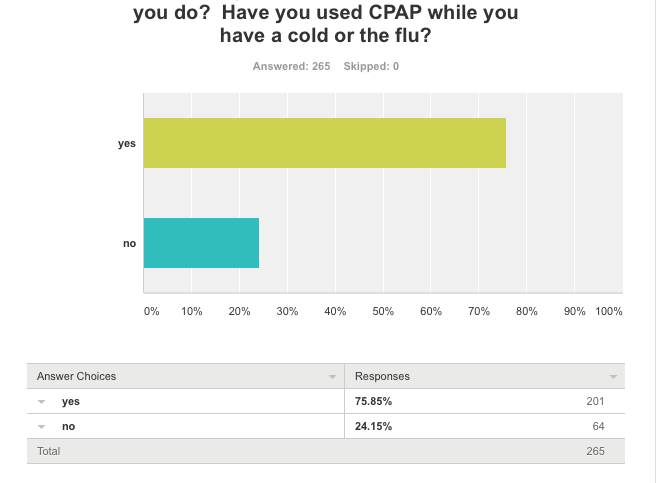
How our CPAP Users share tips
We’ve often discussed the benefits of using CPAP while sick. When in doubt, it is always best to check with your doctor before discontinuing CPAP therapy. But sleep is a major combatant to colds and flu. Without it, they could last longer and be more difficult to overcome. Moreover, sleep dramatically effect mood. Being in a poor mood makes matters worse while trying to fight off an illness.
We would ask, which is worse, dealing with the CPAP equipment when you have a cold, or not complying with therapy? After all, lack of deep, healing sleep caused by OSA weakens the immune system and potentially prolongs the cold.
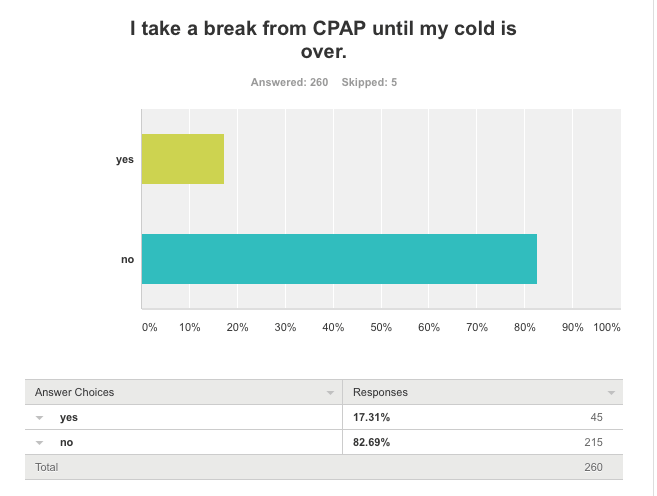
The majority of our 260 respondents continue their CPAP therapy even when they are sick. So we were curious how most of these CPAP users soldier through a cold while still complying with CPAP therapy.
Nasal Sprays, Saline Sprays and Neti Pots
It’s always difficult to breath with a stuffy nose, or with a postnasal drip. For these, we wondered what our CPAP users recommended with the most obvious being saline sprays, Afrin, over the counter nasal sprays or a neti pot.
Surprisingly, only 40% of our respondents use saline spray in combination with CPAP therapy when they have colds.
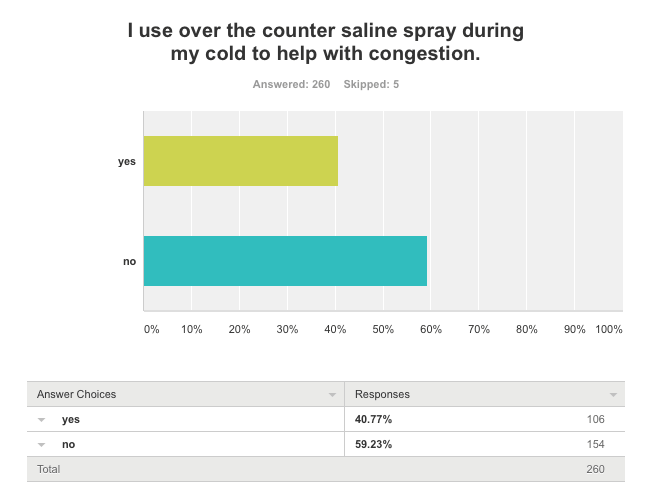
Only 20% use Afrin in conjunction with their CPAP machines when they are sick.
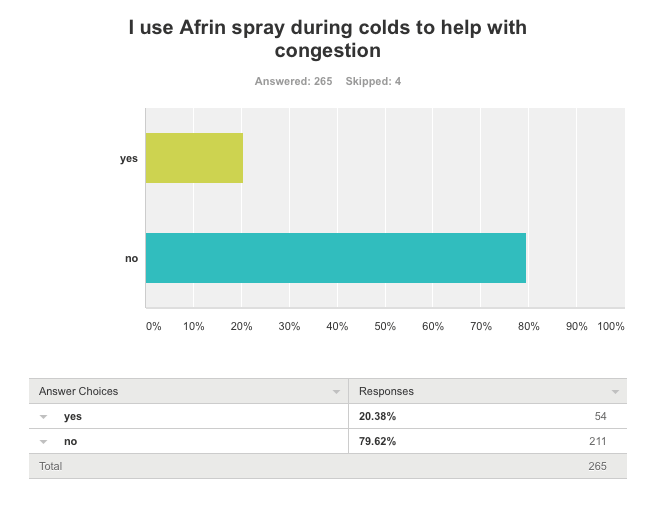
Only 31% use prescription nasal steroid sprays when they have a cold.
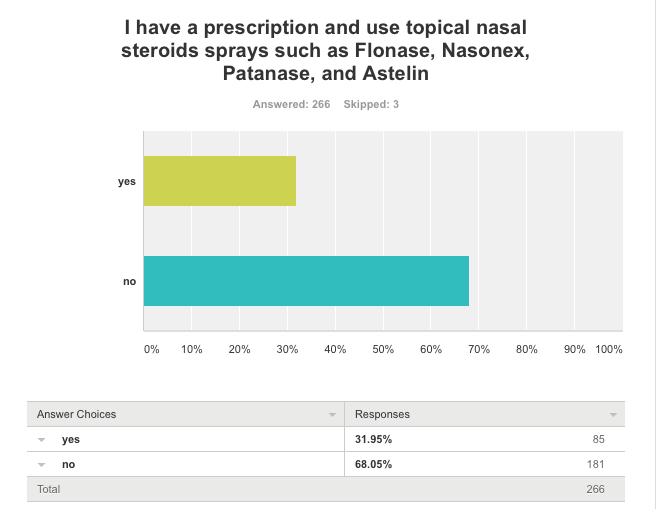
Only 23% of our respondents use a neti pot when they have colds.
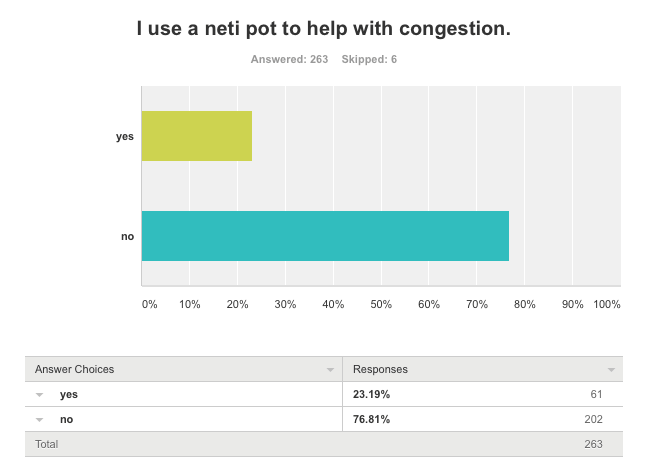
Cough Suppressants
A stuffy nose is one issue. Add a cough into the mix, sleep therapy can get complicated. While the majority of CPAP users do not often turn to nasal sprays for relief from colds, they do often use cough suppressants. We can speculate that the pressurized air coming through the CPAP mask irritates a sore throat, and coughing while wearing a pressurized CPAP mask can become uncomfortable. Whatever the case, over 80% of our respondents use cough suppressants when they are sick with a cold.
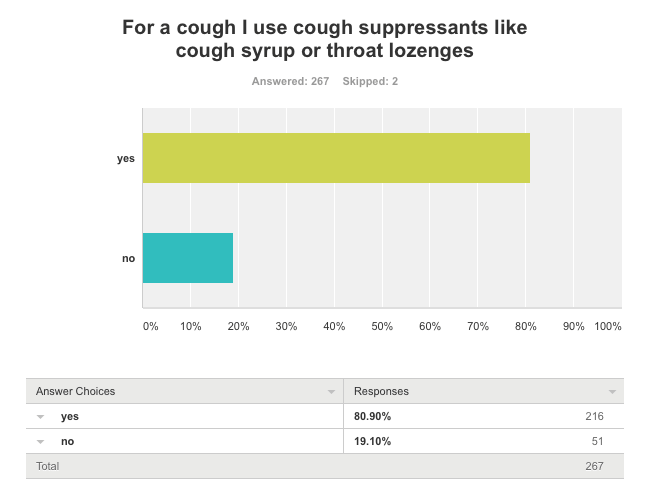
Nasal Pillow or Full Face During a Cold?
Many CPAP users keep a few spare masks around. Sometimes it’s good to switch things up since sore spots might occur. In the case of a cold, a full face mask can be the best remedy. Approximately 37% of our CPAP users switch from a nasal mask to a full face mask when their nasal passages are clogged. This, of course, helps them to remain compliant and benefit from a solid night of sleep irrespective of their congestion. Also, sometimes the air pressure blowing through the nasal pillow mask opens up congested sinus passages, and coupled with saline spray, can produce a full night of sound sleep.
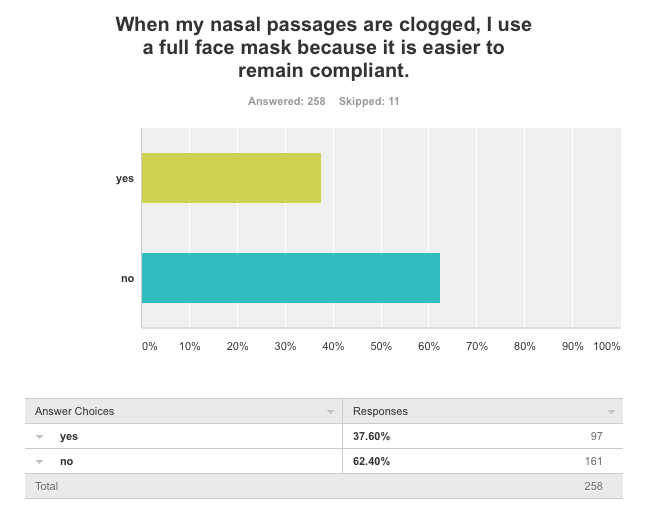
In fact, 56% of our respondents find that the pressurized air from the CPAP machine helps to decongest nasal passages. It might take a bit of getting used to but if you refuse to wear a full face mask, this could be a viable option.
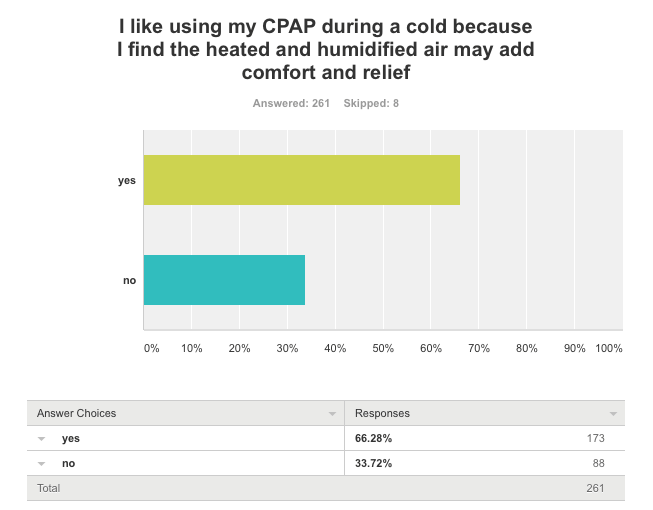
This is Part 1 of this Survey, Read the Next Part of this survey here “Tips on Using CPAP when Sick from CPAP Users". In part 2 of our post, we will expand on how our CPAP users share tips about CPAP equipment use when they are sick.



